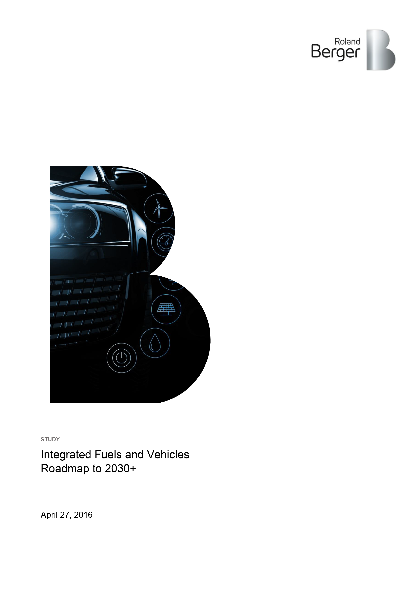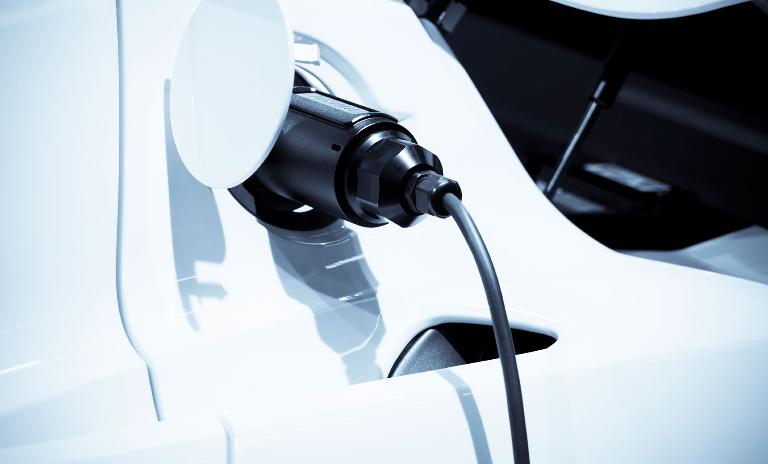Integrated Fuels and Vehicles Roadmap 2030+
![{[downloads[language].preview]}](https://www.rolandberger.com/publications/publication_image/roland_berger_integrated_fuels_and_vehicles_roadmap_to_2030_v2_20160428_1_download_preview.png)
This exclusive study explores possible GHG abatement measures in the road transport sector and supporting policy elements that would deliver sustainable decarbonization efforts.


As Europe attempts to reduce greenhouse gas (GHG) emissions, much focus has fallen on the transport sector and its predominately carbon-based fuels. The ongoing policy debate in the European Union, however, is complex—binding targets for the reduction of road transport sector emissions are still being discussed and are yet to be agreed upon by the European Commission. The EU’s current regulatory framework for vehicle emissions, carbon intensity, and use of renewable fuels is only valid until 2020, leading investors to be wary of low-carbon vehicles and fuels. That is why a coalition of fuel suppliers and automotive companies* commissioned Roland Berger to evaluate fuel and vehicle technologies that could cut GHG through the year 2030 and beyond.
This exclusive study explores possible GHG abatement measures in the road transport sector and supporting policy elements that would deliver sustainable decarbonization efforts. We assess potential measures according to their technical achievability, infrastructure requirements, customer acceptance, and the overall cost to society. "The EU's current regulatory framework for road transport decarbonization needs to be updated for the post-2020 period in order to create certainty for investment in low-carbon vehicles and fuels," explains Dr. Thomas Schlick, partner at Roland Berger.
According to our findings, if current regulations were extended to 2030, the EU’s road transport sector could significantly reduce well-to-wheel GHG emissions from today’s 1,100 Mton to 862 Mton in 2030. Increasing penetration of optimized internal combustion engines would be a major contributor—despite expected lower costs, alternative technologies’ share of new car sales is projected to remain relatively small, leaving their influence on overall emissions marginal. With the right mix of policy support, Europe could cut emissions by an extra 34 Mton CO2 equivalent by 2030. Still, developing optimized engines while bringing alternative fuel and vehicle technologies to market will remain a significant challenge for the oil and auto industries, accounting for 380 billion to 390 billion euros in incremental powertrain costs from 2010 to 2030.
*The Auto Fuel Coalition includes BMW, Daimler, Honda, NEOT/St1, Neste, OMV, Shell, Toyota and Volkswagen.

![{[downloads[language].preview]}](https://www.rolandberger.com/publications/publication_image/roland_berger_integrated_fuels_and_vehicles_roadmap_to_2030_v2_20160428_1_download_preview.png)
This exclusive study explores possible GHG abatement measures in the road transport sector and supporting policy elements that would deliver sustainable decarbonization efforts.

![{[downloads[language].preview]}](https://www.rolandberger.com/publications/publication_image/roland_berger_integrated_fuels_and_vehicles_roadmap_to_2030_v2_20160428_1_download_preview.png)
